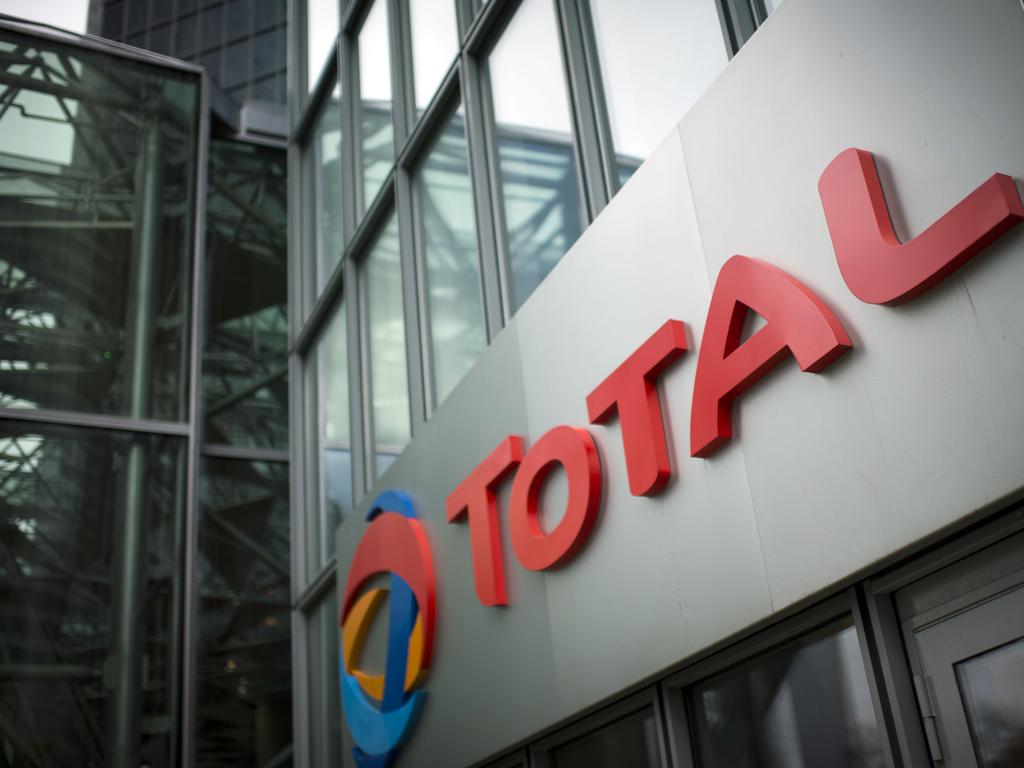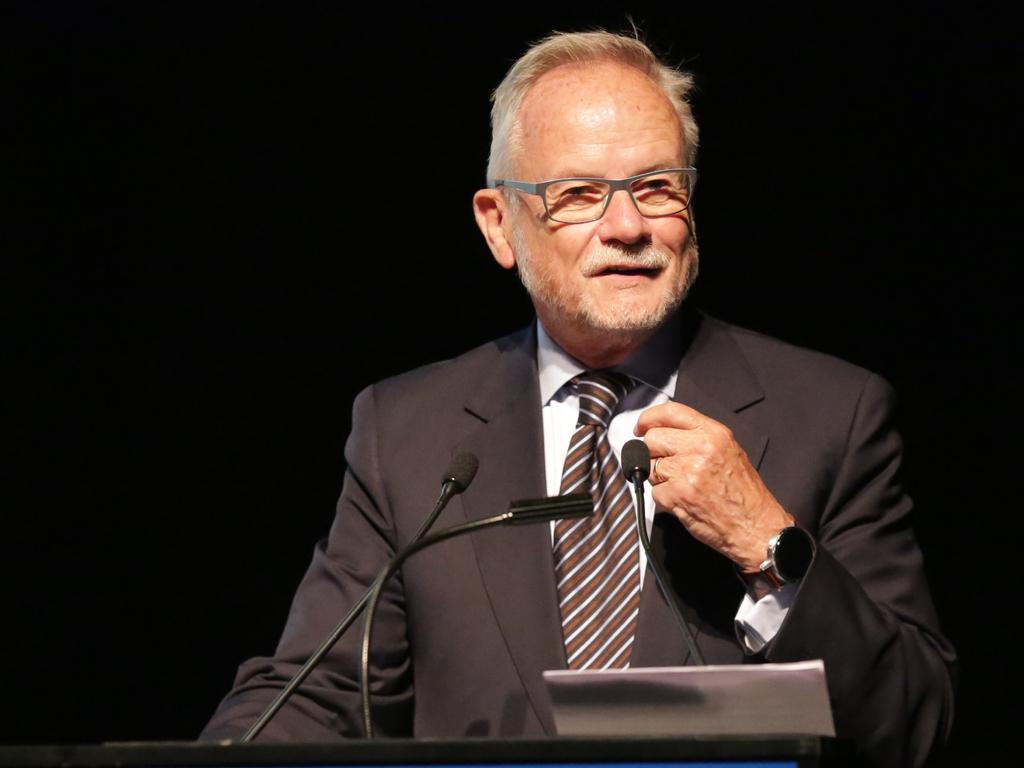Afterpay surges as Tencent buys stake
Afterpay shares rose by as much as 30pc with investors hoping its partnership with Tencent will lead to growth in Asia.

Afterpay’s shares skyrocketed by as much as 30 per cent on Monday with investors hoping the company’s partnership with Chinese tech giant Tencent will translate to a lucrative push into Asia.
The “buy now, pay later” provider began life as a side project for co-founder Nick Molnar who was running an eBay jewellery store, and will now look to take on China’s $US2 trillion ($3.1 trillion) e-commerce market thanks to a “deep and long-term business partnership” with Tencent, which emerged with a 5 per cent share in Afterpay late last week.
In total Tencent spent $319m over several weeks from late March building up the stake.
Tencent is one of the world’s largest companies and is the fifth biggest in the world by valuation, with more than a billion people using its services every day. Through its investments it’s also considered the world’s biggest video game company.
“We actively invest in pioneering companies with focus in fintech and upstream content companies which can provide strategic benefits via partnerships and expansion into new markets such as China,” a Tencent spokesman told The Australian.
“We have made lots of beneficial co-operation with our international investee companies in areas such as games, music, commerce and payment. Afterpay is one of these examples and we look forward to co-operating with them in bringing the customer-centric business model to new markets.”
Royal Bank of Canada analyst Tim Piper called geographical expansion the “big prize” for Afterpay following Tencent’s investment.
“It would have been very hard, if not nearly impossible, for Afterpay to enter China without a strategic partner. In terms of geographic expansion in the near term, Afterpay’s strategy has been to enter markets where its merchant partners see demand,” Mr Piper said.
"However, the likes of Tencent and AliPay have also invested in, and partnered with, other payments companies around the world in recent years, hence the Tencent partnership may accelerate expansion opportunities beyond just China.”
He said Tencent was also likely attracted to Afterpay’s merchant and customer networks in Australia and the US, given global expansion for the likes of Tencent and AliPay has been difficult.
“There is clearly a lot of shared learning on both sides to gain out of this partnership near term that should be very valuable for Afterpay. However, we believe the big prize here, and what the market should be excited about, is expansion into Asia.”
The news did excite the market. Afterpay’s shares opened 30 per cent higher, before closing the day 24 per cent higher at $36.10.
Citi analysts said Tencent’s investment could lead to more product development and technology collaboration, but the chances that the acquisition of shares is the precursor to a takeover are unlikely.
Takeover unlikely
“We see potential for the partnership to accelerate Afterpay’s product development, especially in the area of mobile payments, in-store payments and cross-border trade,” Citi said in a research note.
“Further, we have previously flagged the potential for Afterpay to be added as a payment option to mobile wallets, such as WeChat Pay.”
Citi analysts said they saw the potential for Afterpay to enter the Chinese market in partnership with Tencent and leverage the Tencent user base of about 1.2 billion WeChat users.
It has a 39 per cent market share of third-party mobile payment volumes in China.
“Right now we remain focused on growth and momentum in our existing markets, but following our retailers and expanding further globally is of course something we’ll continue to explore,” Mr Molnar said.
“A strategic investment from a global technology company of Tencent’s calibre isn’t just a testament to our business or our model, it’s a testament to Australia’s growing reputation for fintech and innovation more broadly on the international stage.”
Co-founder and Afterpay chief executive Anthony Eisen said the relationship with Tencent was based on a shared understanding of the value in Afterpay’s business model.
“We’re very privileged to have Tencent join our growing domestic and international investor base. The two businesses have clear synergies and we look forward to learning from their experience as well as the potential to collaborate.”
Tencent can be thought of like Facebook or Amazon in terms of its reach and influence. The company was reportedly on the brink of buying messaging app WhatsApp in 2014, until emergency surgery for its CEO Pony Ma — now China’s richest man — allowed Facebook boss Mark Zuckerberg to swoop in and buy WhatsApp for $US16bn.
Tencent’s most popular app is WeChat but it also owns QQ Messenger and Riot Games, which makes e-sport title League of Legends. It holds significant stakes in a growing number of international properties including Fortnite, Snapchat and New Zealand gaming outfit Griding Gear Games.
In January Tencent acquired 10 per cent of the world’s largest music company, Universal, and it owns most of China’s music services. It is one of the main investors in Australian fintech outfit Airwallex, which recently raised $250m to cement its place as one of the country’s most successful tech start-ups. It’s now valued at almost $3bn.
Airwallex's chief executive and co-founder Jack Zhang told The Australian that his company was fortunate to have Tencent as not only a key investor but also a partner. Tencent has been on board as an Airwallex's investor since its early days as a small cross-border payments outfit.
Tencent was the lead investor in both Airwallex's May 2017 Series A round and its July 2018 Series B round, and continued to participate in all following rounds since.
The companies have also collaborated to integrate Airwallex's foreign exchange and payment capabilities with WeChat Pay, which has more than one billion monthly active users.
“Tencent has played an instrumental role in Airwallex’s growth and global expansion over the last few years," Mr Zhang told The Australian.
"Our continued collaboration has provided many strategic avenues for us to learn from their extensive experience, and as a result, expand our product offerings to better serve our customers worldwide."
Rebecca Schot-Guppy, the general manager of FinTech Australia, welcomed Tencent's growing investment into the local sector.
"Major global deals with leading Australian fintechs are becoming an increasingly common sight in our ecosystem. It speaks to our local sector’s maturity and the sophistication of its major players," she said.
"Overseas expansions can be tough for fintechs due to differing regulations and the need to hire specialist talent. These partnerships often serve as a springboard into new regions, but ultimately end up growing the influence of our local sector."






